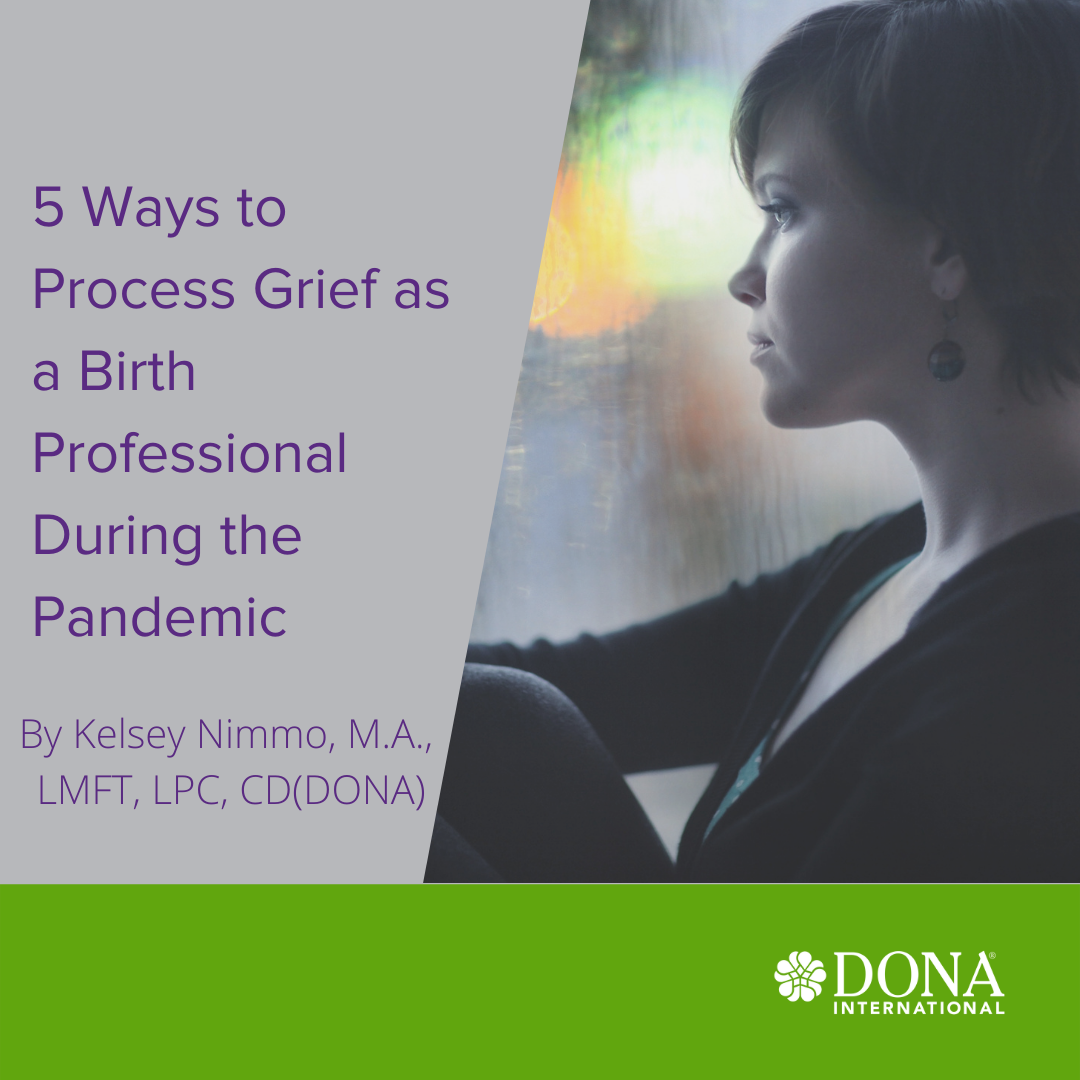I became a birth doula because I thought birth was beautiful – and it certainly can be. But I’ll never forget the first birth I attended that forced me to see the dark side of birth. The side that makes your heart ache and brings tears to your eyes. Unfortunately, the pandemic has brought out the dark sides of birth for many of us and our clients.
The dark side of birth is heavy with grief and loss. It’s when birth becomes scary, lonely, or out of control. It’s when things don’t go as we want or expect them to. Grief often feels this way and, usually, we don’t know what to do about it.
In order to best support yourself and the families you’re working with, you need to learn how to process your own grief and guide your clients in processing theirs. Unresolved grief is cumulative, which means each new loss you experience brings up old losses from your past. Since that bundle of grief can become heavy to carry and impacts the way you’re able to provide birth and postpartum support, it’s important to learn some ways to process all of that grief.
- Make a list of your losses.
Since grief is cumulative, it can be helpful to start by learning about your relationship to grief. Write down all of the losses you can remember on a timeline. If this is hard to come up with, try just writing a story and note the feelings associated with each part of the story.
- Find the meaning in your losses to discover what you’re grieving.
Look through your list of losses and find out what is important to you about each of them. These are probably values like loss of freedom, community, adventure, security, identity, compassion, confidence, etc. Is there a theme in their meanings? Usually, the catalyst that sparked your grief isn’t actually the thing you are grieving – it’s a value attached to it. Dig a little deeper.
- Feel the feels.
It can be tempting to push aside the grief and suppress it. After all, no one really enjoys being uncomfortable and grief is certainly uncomfortable. But when you suppress your emotions and try to ignore them, your brain and body will become more stressed from the effort of trying to hold it in (or push it down). Try being courageous and sit with the discomfort. Spend some time writing about the grief and exploring the values that were challenged or threatened. You can also do this through creative expression, like drawing what the grief looks and feels like. And yes, this is a very vague and abstract directive, but isn’t that what grief is? Vague and abstract? Sometimes words might not fit what you’re feeling. Another way to sit with the discomfort might be to talk about it with a friend, or in therapy, or perhaps meditate with the intention of releasing some of the pain associated with your grief.
- Create meaning and value where it’s needed.
Once you’ve held space for yourself to feel sad or angry, you can create meaning and value for yourself by nourishing what was lost. This step is empowering! If you are grieving the loss of security, identify other parts of your life where you feel secure. If you are grieving the loss of choice and autonomy, make new choices that help you feel empowered and autonomous, or find parts of the story that did include choice. If you lost community, begin creating community in other parts of your life to reclaim the feeling that was lost. This is not the same as replacing the loss (because that truly never works). It means you are intentionally creating a new relationship and experience with the thing you value most.
To support yourself and your clients, you need to be able to enter into each new relationship with a full heart – which is impossible if your heart is heavy with mourning something you lost. If you don’t spend time learning about your grief, holding space for it, and then nourishing yourself, you’ll find that your heart becomes even heavier. Perhaps unbearably heavy. Create space for yourself to heal and support your clients in their healing. As new experiences of loss will surely come your way, they will be easier to manage if they aren’t building up and weighing you down.


